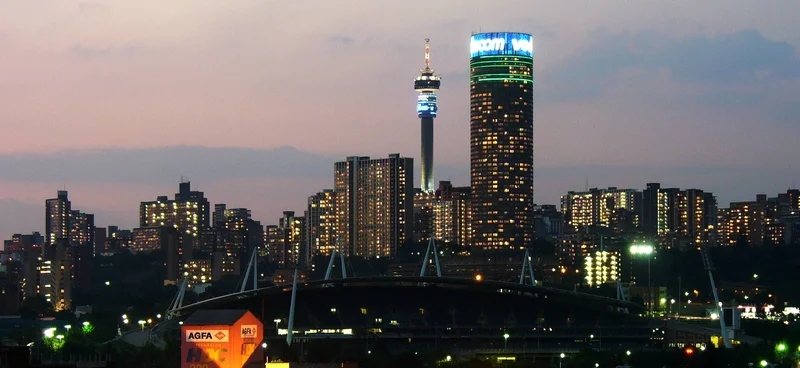Johannesburg: What's Actually Happening?
Johannesburg: Beyond the Gold
Johannesburg, or Joburg as the locals call it, is often referred to as the "City of Gold," a nod to its history as the wealthiest metropolis in Africa, built on gold mines. But that's a simplistic view, isn't it? A single, reductive data point that obscures a far more complex reality. We need to dig deeper than just the gleam of bullion.
The city's transformation each October, when jacaranda trees bloom, is a prime example. Greetings from Johannesburg, South Africa, where spring bursts with jacaranda blooms reports that the avenues turn purple, transforming the "city of gold" into the "city of amethyst." These trees, numbering around 50,000, are actually imports from Brazil. (An import, mind you, not an indigenous growth). It's a beautiful image, this purple haze, but it also highlights a tension: a city defined by something not originally its own. This isn't unique to Joburg, of course; many cities are built on layers of imported ideas and materials. But the contrast here is stark. It's worth asking: how much of Joburg's identity is genuinely homegrown versus carefully cultivated?
St Mary's Waverley, the oldest school in Johannesburg, offers another angle. Founded in 1888, during the height of the gold rush, it was established to educate the daughters of Johannesburg's elite. The school boasts an impressive academic record, averaging over four distinctions per student in 2024—to be more exact, 4.2 distinctions. The head of school, Deanne King, emphasizes the school's Anglican faith and community programs. But let's be clear: this is a private school, serving a specific segment of the population. What about the educational opportunities for those outside this privileged circle? Is the "City of Gold" truly providing equal opportunities for all its residents, or just polishing the prospects of a select few?
Immigration and the Prioritization of Rights
Operation Dudula's recent legal battle throws another wrench into the narrative. The movement, aimed at preventing "undocumented immigrants" from accessing public healthcare, was interdicted by the Johannesburg High Court. The court ruled that only immigration and police officials can demand identity documents, and that an individual's undocumented status doesn't justify violating their human rights.

This is where things get tricky. Operation Dudula claims to be defending the rights of South Africans, arguing that the government isn't prioritizing its own citizens. This sentiment, while controversial, reflects a real concern about resource allocation and national identity. It's a zero-sum game in their eyes; every resource given to an immigrant is one less for a South African.
And this is the part of the analysis that I find genuinely puzzling. The African Diaspora Forum proposes an "urgent migrant Indaba" to develop collaborative strategies on immigration. But collaboration requires trust, and trust is in short supply when resources are perceived as limited. The core question remains: how do you balance the rights of citizens with the humanitarian obligations to those seeking refuge or opportunity? The data on this is always skewed by emotional rhetoric, making objective analysis difficult.
The court ruling directs the government to implement the National Action Plan to combat racism, xenophobia, and related intolerance. A noble goal, certainly. But how effective will this plan be in addressing the underlying economic anxieties that fuel movements like Operation Dudula? A plan on paper is one thing; tangible change is another. We need metrics, measurable outcomes, not just platitudes.
Beyond the Surface: A City in Constant Negotiation
Johannesburg, like any major city, is a complex equation with constantly shifting variables. The jacaranda blooms offer a veneer of beauty, but beneath the surface lie issues of inequality, immigration, and identity. The "City of Gold" is more accurately a city in constant negotiation—negotiating its past, its present, and its future. And that negotiation is far from over.
The Real Return on Investment?
Is it possible to quantify the human spirit or the cost of lost opportunity? The data paints a complex picture, but the real story lies in the unquantifiable: the hopes, fears, and aspirations of the people who call Joburg home.
Tags: johannesburg
Chongqing: China-Singapore Ties and Western Hub Ambitions
Next PostSantiago: What's Next?
Related Articles
